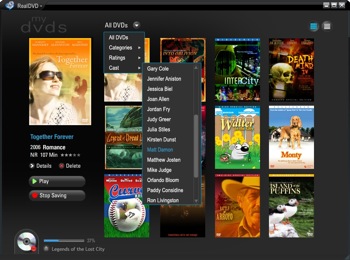RealDVD ruling leaves consumers in legal limbo
Judge upholds both fair use copying and studio's injunction

Sign up for breaking news, reviews, opinion, top tech deals, and more.
You are now subscribed
Your newsletter sign-up was successful
If you've already got a copy of RealDVD copying software, you're free to keep backing up your DVDs. But RealNetworks has been permanently banned from selling it - and could face significant damages.
Confused? You should be. Judge Marilyn Patel's ruling yesterday does little to clear up the legal minefield surrounding the copying of DVDs.
On the one hand, the Hollywood studios will be cheering today as the US District Court upheld a temporary restraining order preventing Real from "manufacturing, importing, offering to the public, providing or otherwise trafficking in" their RealDVD software or proposed a Facet set-top box.
Backing up gets legal back-up
On the other, the judge refused to close the door on domestic 'fair use' copying (backing up a DVD film for personal use), effectively allowing anyone currently owning a copy of RealDVD (or Kaleidescape's DVD-ripping media players) to continue to do so.
The only clear loser in the legal battle is RealNetworks itself. Few of the Seattle company's arguments found favour with Judge Patel. She ruled that DVD's CSS copy-protection mechanism could still be considered 'effective for the average consumer', despite having been cracked a decade ago. This means that the RealDVD has violated the Digital Millennium Copyright Act (DMCA), legislation that outlaws technology designed specifically to circumvent copy protection measures.
Patel also found that RealNetworks circumvented the ARccOS and RipGuard systems that introduce unnoticeable errors into DVD discs in order to slow down or prevent duplication. This is a second infringement of the DMCA, and it's these breaches of contract that expose Real to the possibility of hefty liability claims from Hollywood.
Sign up for breaking news, reviews, opinion, top tech deals, and more.
However, when it comes to 'fair use', consumers can take heart. Patel ruled that, "The DMCA prohibits the circumvention of technological measures that guard copyrighted material, but does not prohibit the downstream or end use of those materials after circumvention has occurred."
If you bought RealDVD in good faith - or simply downloaded a shareware or open source DVD ripper - and are using it only to make back-up copies of discs that you own, it appears that you're not breaking US law. This week, at least.